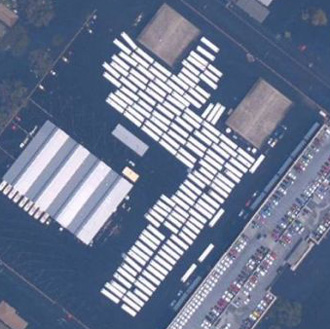I mentioned in an earlier entry that I was excited, when watching the 1992 British election results, to see that Michael Bates, a Conservative, had been elected as MP for Langbaurgh. He was turned out in the Labour victory of 1997 (for the renamed seat of Middleborough South and Cleveland East). Tonight I found out there was more to like about him than just his name.
I googled to see what had become of him, and it turns out that he writes a "Thought for the Week," published on the website of the Conservative Christian Fellowship, an organization that seeks to reconnect British Christians with the political process.
The other Michael's columns are meditations on living out the Christian faith in the world. They are a bit lengthy, but thoughtful, and lead the reader in unexpected directions.
His most recent essay starts with the Senate confirmation hearings for UN ambassador-designate John Bolton, and the complaints about his temperament and management style, and asks how should a Christian manage people. A Christian manager should be a servant to his subordinates; a visionary leader; a casting director, matching people to the jobs that fit them; a skilled navigator, setting realistic short-term goals to maintain morale over a long-term project; and an encourager.
You'll find links to column archives at the bottom of that page. The most recent archive, from March and April, includes an essay on spiritual healing, a piece called "Thank God for Politicians," an account of an epiphany in a New York jazz club, and some thoughts about town criers, the men of Issachar, and the Internet. I've just begun to read through it, and I think you'll find it worth your time.
The piece on healing starts with a phrase from Isaiah's prophecy which Jesus reads in the synagogue at Nazareth: "He hath sent me to heal the brokenhearted...." Bates writes that we don't respond to inner pain as we ought. We try to numb the pain, but it always comes back, because we don't look to the One who can heal it:
Today we see certain symptoms of inner injury prevalent amongst Christians and non-Christians alike: anxiety, guilt and depression. These symptoms define our sense of self-worth, our relationships and our work. Yet our approach to remedying them differs substantially from physical injury. The instinct is to struggle on in the hope that it will heal itself, or to blame people or circumstance and as such transfer the power to change our hearts into the hands of other human beings. If you have ever carried an injury physically we know that perhaps sitting in a chair and resting you can appear fairly normal-like Agnes Sanford's domestic appliance--and be fairly comfortable, but the extent of our injury is revealed when we try to exert ourselves in even the most minor tasks: climbing the stairs, lifting a box etc.
There is a purpose in pain and that is to get us to rest the injury. There is a purpose in spiritual and emotional pain and that is for us to seek inner healing. Tragically, many of us wander through life in denial never pausing to rest and realise that there is an injury to our soul, which requires the healing touch. We have become expert in believing that all that is required to alleviate the symptoms of the injured soul is more money, a new job, a new relationship, alcohol, food and entertainment. In other words anything which distracts us from facing up to the pain which lies within. Whatever distraction technique we try our cloud re-appears in the morning. The message is this God wants to replace our anxiety with His peace; our guilt with His forgiveness, our depression with His joy and to restore our relationships beginning with our relationship with God. It was for this very reason that Jesus came, that we may again be at one with our Lord and enable Him to bind up the wounds of our broken hearts.
In "Thank God for Politicians," Bates calls on Christians to reject cynicism and rather to appreciate those who serve as politicians:
For many if not most of our politicians politics is a vocation, a worthy calling to serve the 'common good,' not a career designed to serve themselves. Few, except the foolish, would ever seek elected office to make money. Few would seek elected office in pursuit of an easy life. Few would find the experience of canvassing of receiving abuse and having doors slammed in their faces an effective boost for the ego. Most people enter politics because they rather like people and are proud of their communities and want to serve them. Politics involves sacrifice and often those who pay the highest price are the spouses and children of elected representatives.
He calls on Christians to thank those who seek office and assure them of our prayers, to consider the values and character of a candidate when they go to vote, to pray for Christians in public office, and to pray for spiritual awakening in the nation. And how should a Christian respond when a candidate knocks on the door?
[W]hen a canvasser comes to your door to deliver a leaflet or enquire after your voting intentions, don't berate them because they are disturbing you in the middle of an episode of 'Eastenders,' or because they have woken the children who have just been put to bed. Don't be aggressive or defensive, don't enter into an argument over some aspect of policy, but be reasonable in your conversation. Listen to what they say and ask genuine questions that will help you decide how to cast your vote. Thank them for treading the streets in the rain, for giving of their time and for playing their part in upholding our freedom, serving our community and enabling us to be better informed about those who seek to represent us.
Here I am in Oklahoma, where Christian involvement in politics is a given, and it seems strange to read this website telling British Christians that politics is a noble pursuit, urging them to get involved and to commit to being involved in the process over the long haul. Then I remember that 30 years ago, American Christians needed the same prompting to get involved, and it took groups like the Christian Coalition not only to urge the involvement of Christians in the system but also to instruct them in how the system works. I remember attending a seminar at Grace Fellowship in Tulsa, back in the late '80s, at which we learned about precinct caucuses and county conventions, platform and rules committees, and door-to-door canvassing -- all the nuts and bolts of party activism and campaigning.
The Conservative Christian Fellowship appears to have learned from the successes of the conservative Christian movement in America and from its shortcomings as well. Have a look at its mission statement. The CCF doesn't believe that revival will result from political victory. It understands that what ails Britain (and read anything by Theodore Dalrymple if you don't believe that Britain is ailing) is a spiritual problem at the root, and the state must leave room for the church to play its role in society. The CCF isn't about achieving a laundry list of legislative goals, but about getting people with a Christian worldview involved in politics, culture, and education.
I'm struck by the parallels between the uphill task faced by Conservatives in Britain and Republicans in Blue America, and the role that the committed Christian remnant could play in transforming politics in these evidently post-Christian realms. Republicans in the Blue States can learn from the CCF how to involve and energize Christians who now sit on the sidelines, disheartened because both major parties ignore their concerns. We Red Staters have something to learn from the CCF, too: A broader understanding of what it means to live out the Christian life in a democracy.
I'm happy to learn that a group like the Conservative Christian Fellowship exists and to learn that someone named Michael Bates is a part of it.





